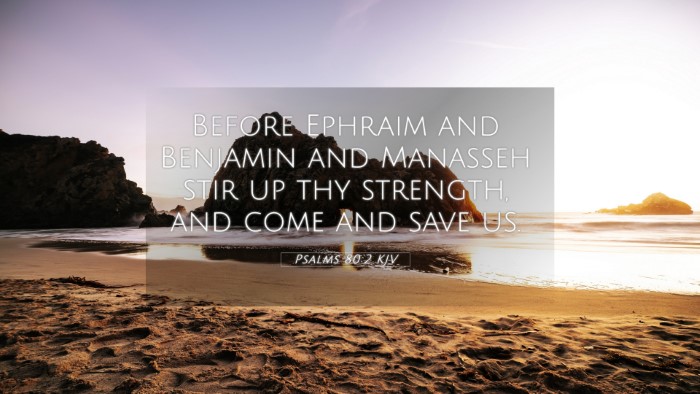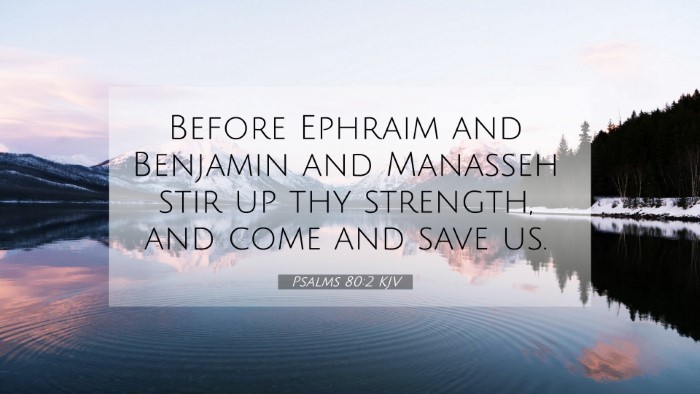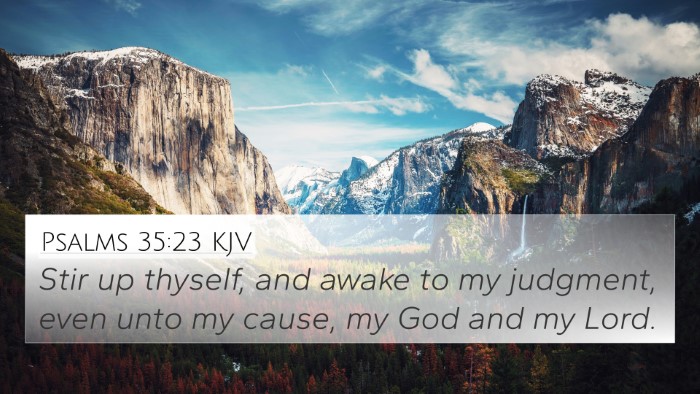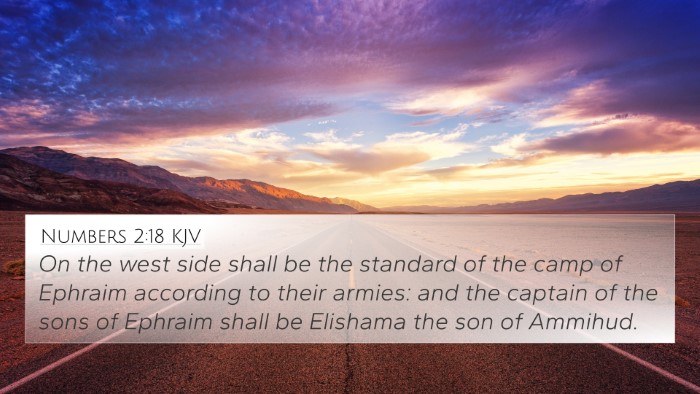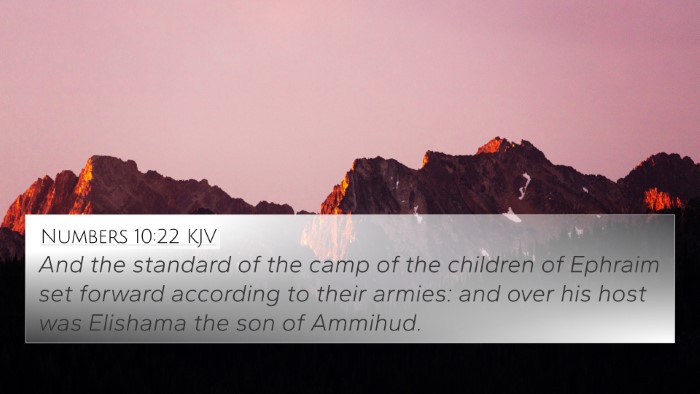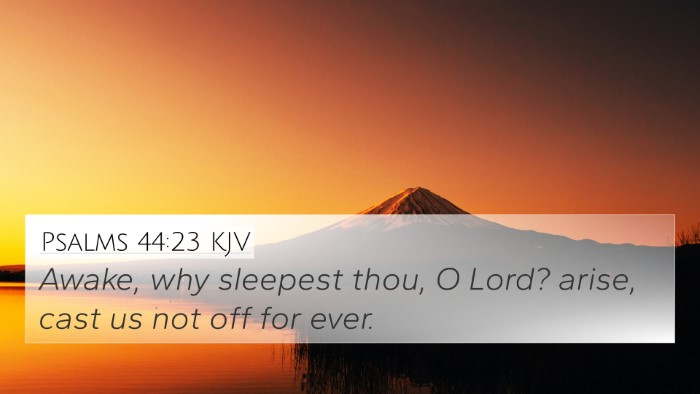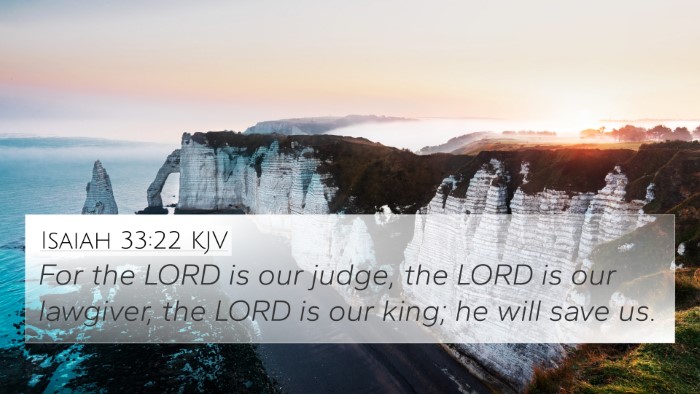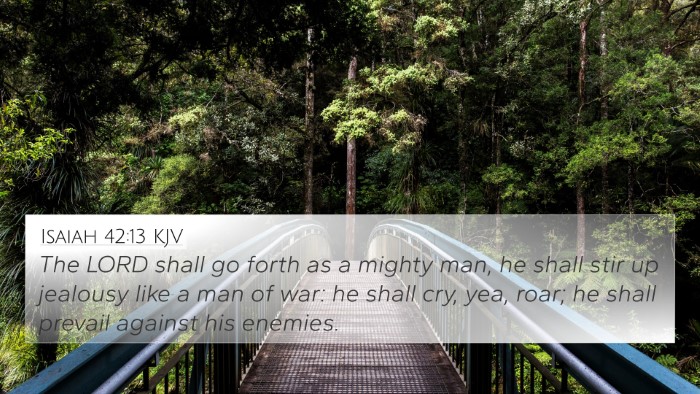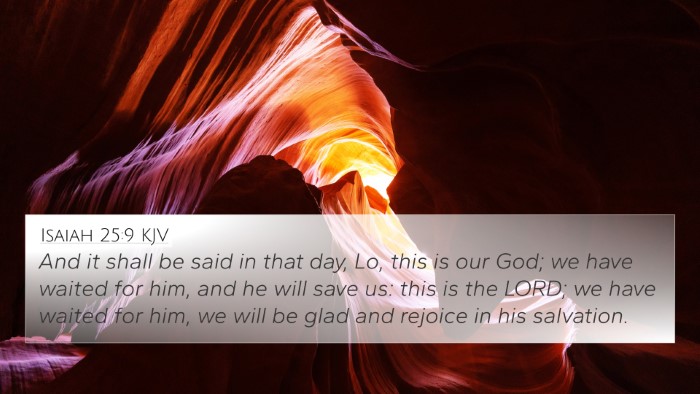Psalms 80:2 - Meaning and Interpretation
Psalms 80:2 states: "Before Ephraim and Benjamin and Manasseh, stir up thy strength, and come and save us." This verse calls upon God to manifest His power and deliverance for the tribes of Israel, symbolized by Ephraim, Benjamin, and Manasseh.
Summary of Insights
This verse reflects the earnest plea of the psalmist for God’s intervention. The tribes mentioned represent a broader appeal to God for the restoration of the nation. Each tribe has significance: Ephraim often symbolizes the northern kingdom, Benjamin represents the smaller tribe often seen as loyal, and Manasseh is significant as a half-tribe and a large population.
Commentary Insights
-
Matthew Henry:
In his commentary, Henry emphasizes the communal nature of the cry for help, pointing out Israel's unity in seeking salvation. He suggests that the tribes' cry indicates a recognition of their collective need for God’s intervention amid decline or distress.
-
Albert Barnes:
Barnes highlights the historical context and the symbolism associated with the specific tribes. He notes the significance of invoking these tribes before God, suggesting a plea borne out of past heritage and God's promises toward them. His interpretation signifies a longing for restoration to former glory.
-
Adam Clarke:
Clarke focuses on the deeper theological implications of this verse, examining the covenant relationship between God and Israel. He explains the urgency that drives this petition, indicating deeper spiritual and physical desolation amongst the people.
Related Bible Cross References
- Psalm 27:7: A call for help, showing the consistent theme of seeking God’s presence in times of distress.
- Isaiah 63:15: This verse echoes a similar plea for God to look down and act on behalf of His people.
- Jeremiah 31:9: Acknowledges the return of the tribes, reflecting Israel’s continual cycle of sin and redemption.
- Exodus 3:7: God's promise to hear the cries of His people and to respond, relating directly to the themes of salvation and deliverance.
- Matthew 1:1-3: The genealogical mention of tribes and their significance connects the Old Testament promises to New Testament fulfillment.
- Romans 11:1: Paul discusses God's preservation of Israel, linking the call for divine help in Psalms to his teachings in the New Testament.
- Hebrews 11:32-33: Memories of faith heroes who called on God, mirroring the call for deliverance in Psalms.
Understanding the Call for Divine Intervention
The invocation of God's strength signifies a recognition of human limitations, emphasizing a recurrent theme in Scripture where reliance on divine power is essential for salvation. This verse embodies the church's continual cry for spiritual awakening and restoration, paralleling the experiences of modern believers.
Connections between Psalms 80:2 and Other Scriptures
The thematic connections can be seen throughout both the Old and New Testaments:
- Psalm 20:9: The theme of seeking victory and salvation, invoking the name of the Lord for assistance.
- 2 Chronicles 7:14: A reminder that humility and prayer are vital for God to heal and save His people.
- Acts 4:24: The early church echoes the themes of unity and seeking God in collective petitions.
Comparative Bible Verse Analysis
Analysis of this verse alongside others encourages believers to explore the relationships and dialogues between texts. For example, comparing this call in Psalms with the prophecies in Isaiah enhances the understanding of expectation and fulfillment regarding God’s plan for His people.
Conclusion
Psalms 80:2 invites us into a deeper relational understanding of God and highlights the importance of communal prayer in seeking divine intervention. Through scriptural cross-referencing, we can see how interconnected the scriptures are, encouraging a dynamic dialogue between past and present biblical themes. This encourages believers today to reflect on their own cries for help and restoration, understanding that they are part of an ongoing narrative of faith.

